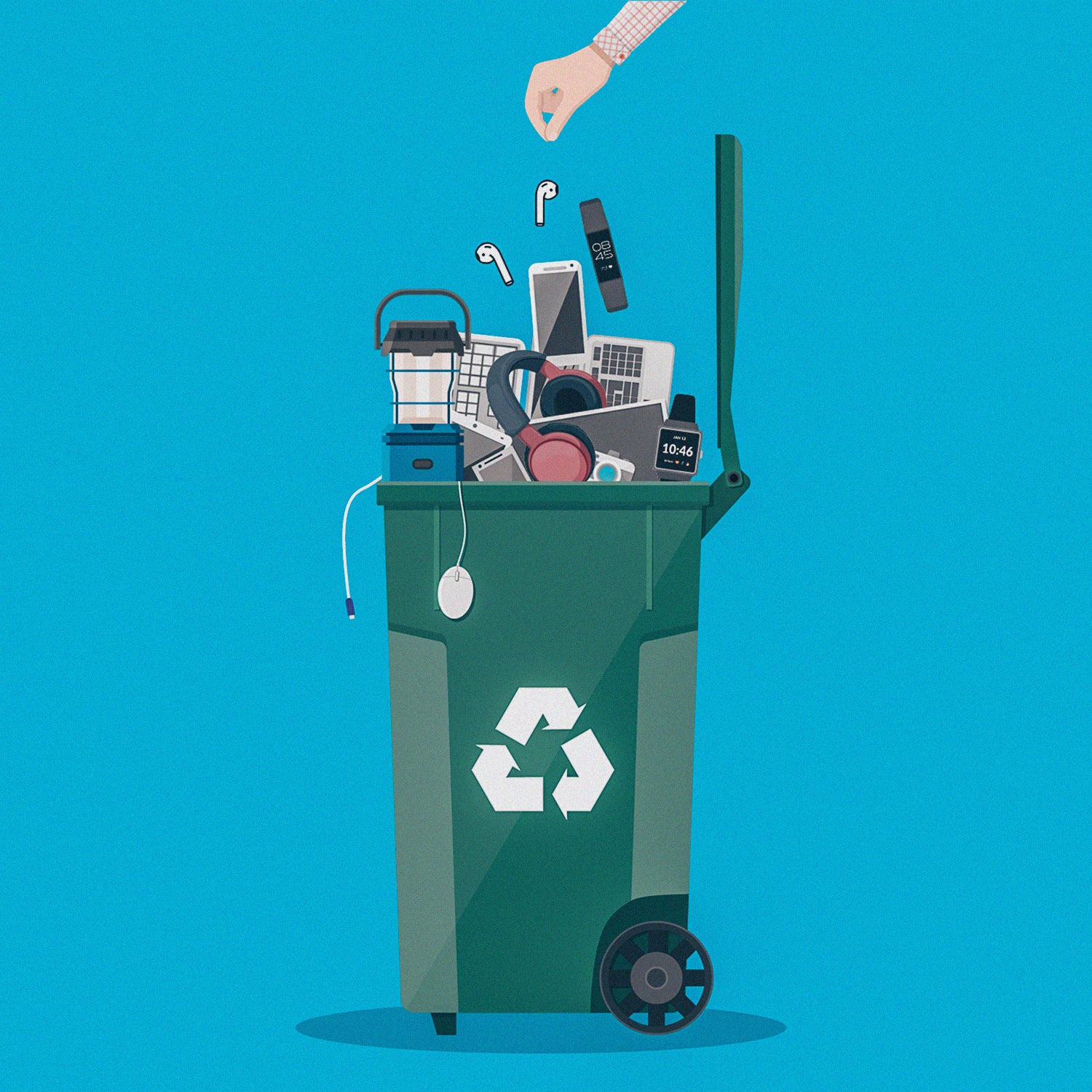Prioritize Sustainability: Go With R2 Certification Electronics Recycling Solutions
Prioritize Sustainability: Go With R2 Certification Electronics Recycling Solutions
Blog Article
Elevate Your E-Waste Administration With R2 Certification: an Extensive Introduction
One key approach to boost e-waste management practices is by attaining R2 certification. By checking out the procedures and advantages associated with R2 qualification, a deeper understanding of just how it can revolutionize e-waste monitoring approaches emerges, dropping light on a path towards sustainability and moral disposal techniques.
Value of E-Waste Monitoring

When e-waste is not managed appropriately, these toxic substances can permeate right into the environment, creating damage to wildlife and possibly entering the food cycle, posing dangers to human health. Moreover, the incorrect disposal of e-waste contributes to air pollution and greenhouse gas emissions, worsening climate adjustment and ecological degradation.

Benefits of R2 Qualification

Firstly, R2 certification boosts credibility by showcasing an organization's commitment to lasting practices. It ensures customers, companions, and stakeholders that the business complies with stringent criteria for e-waste administration - r2 certification. This reputation can lead to boosted count on and improved relationships with customers that focus on environmental obligation
Second of all, R2 certification helps alleviate dangers related to incorrect e-waste disposal. By complying with the strict standards established forth by the certification, companies can reduce the probability of data violations, ecological contamination, and legal consequences. This aggressive approach safeguards the firm's track record and reduces prospective responsibilities.
Lastly, R2 certification demonstrates a dedication to environmental stewardship - r2 certification. By sensibly handling digital waste via licensed processes, companies add to the conservation of resources, reduction of contamination, and promotion of a round economic climate. This dedication not just benefits the environment yet likewise lines up with evolving consumer expectations for sustainable organization methods
R2 Qualification Process Overview
Having developed the benefits of R2 qualification in advertising integrity, risk mitigation, and ecological stewardship, it is necessary to now describe the detailed process included in obtaining official website this certification. The R2 qualification procedure begins with a comprehensive review of the company's functional policies and procedures to make certain conformity with the R2 requirement. This first assessment is crucial in determining any gaps that require to be addressed before proceeding even more.
As soon as the company's methods straighten with the R2 common needs, an independent third-party auditor performs an on-site audit to assess the application and efficiency of these practices. This audit consists of an extensive review of documents, interviews with personnel, and physical inspections of facilities to validate compliance.
Following a successful audit, the company receives a certification decision based upon the auditor's findings. If accepted, the company is given R2 accreditation, showing its commitment to liable e-waste management. It is necessary to note that preserving R2 qualification requires recurring conformity with the standard's demands and regular audits to guarantee continued adherence to ideal practices in e-waste recycling and disposal.
Key Requirements for R2 Compliance
A vital element of achieving R2 compliance is making sure that all electronic waste (e-waste) handling facilities satisfy rigorous environmental and security criteria. To abide by R2 requirements, companies have to abide by key requirements that concentrate on accountable e-waste monitoring practices. These criteria consist of executing a recorded environmental, wellness, and security administration system, making certain the safe and secure handling of data-containing gadgets, and conducting complete downstream due persistance to track the last location of e-waste products.
Moreover, R2 compliance necessitates the he has a good point correct testing, repair, and recycling of digital devices to expand its helpful life and reduce environmental influence. Facilities seeking R2 accreditation need to likewise prioritize worker wellness and safety by supplying required training, individual safety equipment, and a safe functioning setting. Additionally, keeping in-depth documents of e-waste handling tasks and on a regular basis going through audits by approved licensing bodies are crucial elements of demonstrating recurring conformity with R2 standards.
Influences of Lasting E-Waste Practices
The execution of lasting e-waste techniques based on R2 compliance not only makes sure environmental and safety and security standards are satisfied yet additionally dramatically affects the overall lifecycle of electronic products. By sticking to R2 criteria, digital waste management procedures come to be much more reliable, reducing the environmental footprint of digital products. Lasting e-waste practices facilitate the correct disposal of digital elements, making certain that dangerous products are taken care of sensibly and do not wind up contaminating the environment.
Furthermore, sustainable e-waste practices can add to work creation in the recycling and refurbishment industries, fostering economic development while promoting ecological duty. In general, the fostering of sustainable e-waste practices under R2 qualification serves as a crucial action towards attaining an extra ecologically lasting electronic devices sector.
Final Thought
In final thought, executing correct e-waste administration techniques is important for environmental sustainability and source preservation. R2 accreditation plays a vital duty in guaranteeing responsible handling and disposal of digital waste. By adhering to the stringent criteria established forth by R2 criteria, organizations can not only reduce their environmental influence however also add to a much more lasting future for generations to come.
One trick approach to raise e-waste management techniques is by attaining R2 certification. By checking out the procedures and benefits linked with R2 qualification, a much deeper understanding of just how it can revolutionize e-waste monitoring methods emerges, losing light on a path in the direction of sustainability and navigate to this site moral disposal techniques.
The R2 qualification procedure begins with a comprehensive testimonial of the organization's functional policies and procedures to make sure conformity with the R2 standard. If approved, the organization is provided R2 accreditation, demonstrating its dedication to responsible e-waste management. Generally, the adoption of lasting e-waste practices under R2 qualification offers as an important action in the direction of attaining a much more ecologically sustainable electronics sector.
Report this page